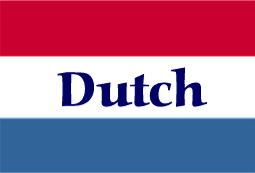NEWS FEATURE: Finance crisis forces Dutch return to "old" politics
 Amsterdam - Eight years after so-called "polder model" politics was officially carried to its grave in the Netherlands, the economic crisis has revived the typically Dutch socio-political tradition of compromise and pragmatism.
Amsterdam - Eight years after so-called "polder model" politics was officially carried to its grave in the Netherlands, the economic crisis has revived the typically Dutch socio-political tradition of compromise and pragmatism.
Wednesday the labour unions and employee organisations deliberated on the government's proposal for measures to fight the economic crisis.
The outlines were already revealed to the public - 6 billion euros (8.104 billion dollars) of investments in the next six years, followed in 2011 by cutbacks of 5 billion euros.
However, the proposal's details have not yet been presented in parliament - let alone voted on by the legislators.
By contrast, the major labour unions and employee organisations, also known as the "social partners" in Dutch political jargon, had seen the government's proposals the previous night.
And even more, both powerful interest groups in Dutch society had joined government talks late Tuesday night to debate the proposed measures.
Labour union FNV left the talks early Wednesday claiming it had successfully postponed government plans to raise the legal retirement age from 65 to 67. In exchange, FNV and other unions had agreed to freeze the salaries for the time being.
Pre-negotiating a deal with all parties that have a vested interest in the agreement before its formal presentation is also known in the Netherlands as the "polder model."
The polder model - "polder" is Dutch for artificially drained land - represents typically Dutch political pragmatism.
Rather than wait for possible opponents to its proposal, the government invites those potential adversaries to the negotiating table.
A give-and-take then follows, with the government compromising on certain issues in exchange for these socio-economic interest groups' support to its general proposals.
The "polder model" boasts a long tradition. But its biggest moment came on November 24, 1982 when the Dutch government and "social partners" secretly convened at a private home in the upscale village of Wassenaar near The Hague.
There, they concluded a deal providing for the freezing of salaries in exchange for reduced work hours.
The "Wassenaar Agreement," as it was later known, marked a turnaround in the ongoing recession of the 1980s.
In the 1990s, the Liberal-Labour led coalition thrived on the "polder model," involving unions and employee organisations on a continuous basis whenever dealing with relevant legislation.
The traditional gap between the government, the unions, the employee organisations appeared to have disappeared in the Netherlands.
Everything could be pre-negotiated. Protest rallies or strikes were no longer necessary as a means for a group to achieve its goals.
It was the late politician Pim Fortuyn who ended the "polder model" tradition. Fortuyn, assassinated in May 2002 days before he was slated to win a major victory in the Dutch parliamentary elections and instantly become prime minister, called for political transparency.
The "polder model" was just euphemism for "cooking a deal out of the public eye," he charged. Debates ought to be conducted in parliament, so legislators and the public could see what was happening.
Fortuyn's ideas have strongly influenced Dutch politics from right to left ever since.
In the past eight years, pre-negotiating agreements out of the public eye has been out-of-fashion regardless one's political colour.
This changed overnight in recent weeks, when government officials convened daily to negotiate an economic support plan.
As talks progressed, representatives of the various labour unions and employee organisations were repeatedly invited to the prime minister's office.
Government officials from the three coalition parties increasingly stressed the importance of "social coherence in times of crisis" and the "prevention of social unrest."
It is crucial, they said, to fight the crisis together, rather than fight each other, or otherwise the economic measures could not be implemented properly.
After the coalition had reached an agreement on principles on Tuesday, the "social partners" - labour unions and employee organisations - formally joined the talks to discuss the contents of the proposed measures.
The plans' official presentation to the parliament was due to take place later on Wednesday. None of the political parties was particularly bothered about being the last to be fully updated.
The one exception, not surprisingly, was Freedom Party PVV leader Geert Wilders, Fortuyn's unofficial successor. (dpa)